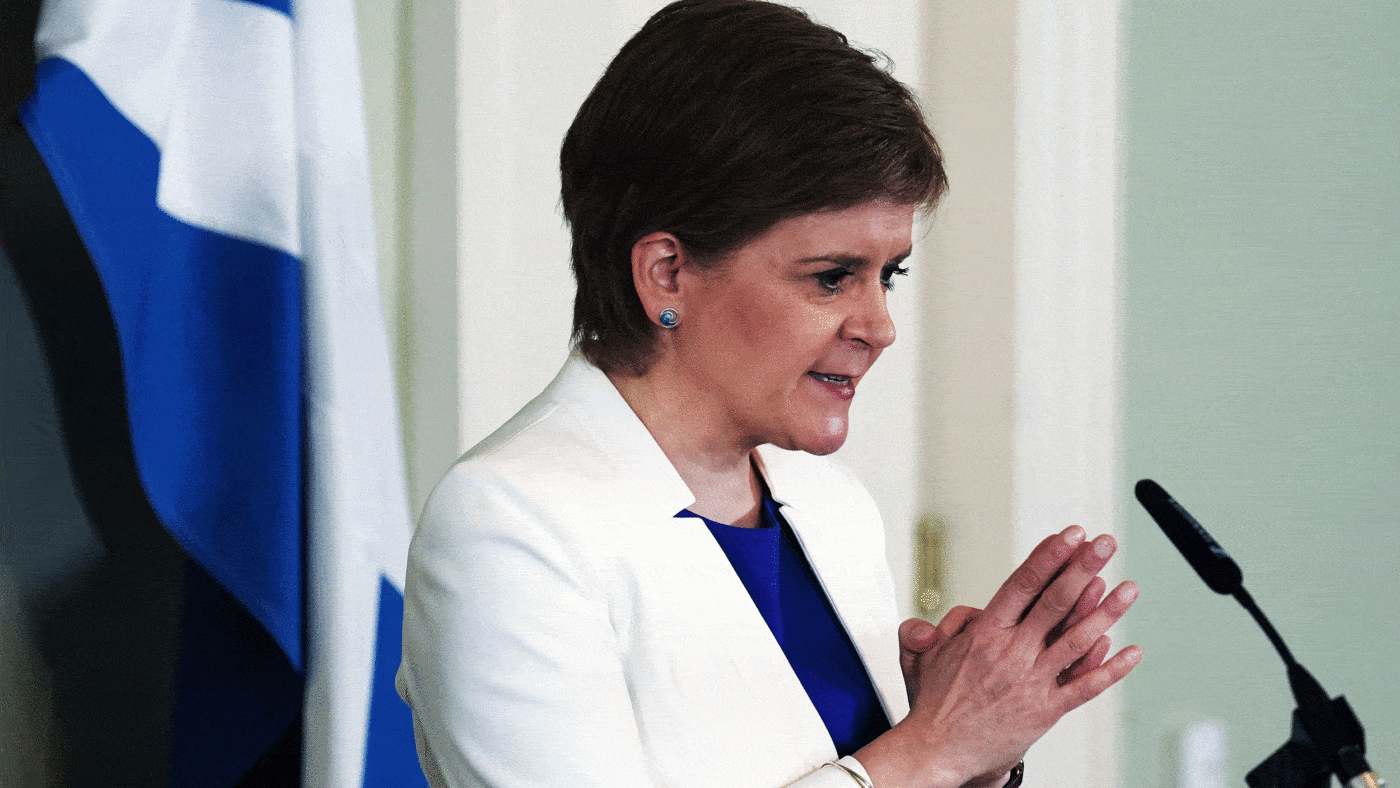Despite expectations when he became Prime Minister, Boris Johnson never became the Sassenach bogeyman Nicola Sturgeon and the Scottish separatists yearned for him to be.
Undoubtedly unpopular but, based on current polling, not a catalyst for the great leap forwards towards independence.
When the history of his time as Prime Minister comes to be written, Scotland is unlikely to feature heavily, largely because studious indifference to the Scottish question has characterised Downing Street’s policy since 2019.
His approach was an ad nauseam repetition that now was not the time for a second referendum. For her part, Nicola Sturgeon outdid the Grand Old Duke of York in her steadfast refusal to march her followers over the hill towards the promised land of a second referendum. Scotland has suffered as a result of its two governments engaging in this tedious constitutional highwire act.
A new leader should present a new opportunity. However, based on current evidence, the candidates seeking to replace Johnson remain committed to parroting that ‘now is not the time’ or general blandishments about ‘protecting our precious union’, without any real explanation of what that actually means.
Take, Penny Mordaunt, initially billed as the anointed choice of the Scottish wing of the party after some of her effective takedowns of Ian Blackford across the despatch box went viral.
However, closer scrutiny of her thinking about the essence of the UK should temper the view that she would be a departure from the laissez-faire approach which characterised the Johnson era. Writing in her recent book, Mordaunt mused that ‘there is no such country as Britain’ and that ‘there’s no evidence that this ambiguity is a disadvantage’.
At a time when the UK as a concept is being assailed from all directions, a Conservative Prime Minister who believes that a mutual love of queueing and talking about the weather would keep the country together would be the natural endpoint after years of intellectual drift.
Yet these tokenistic gestures speak to the wider malaise which has gripped unionist thought in the Conservative Party, certainly since the Cameron era, where some of the greatest calumnies of the ‘devolve and forget’ mindset were perpetrated. If, as Rishi Sunak seems to believe, giving more money directly to Scottish councils while bypassing Holyrood is the best answer to separatism they have, then this is a party very much out of ideas.
The one cause for optimism was the analysis offered by Kemi Badenoch before she was eliminated from the race. Noting that ‘Scotland deserves so much better’ and committing to call out the SNP, her dissection of Sturgeon’s failures and the souring of public discourse in Scotland showed there were some reasons to be cheerful.
The reaction from nationalists – including a typically bumptious intervention from SNP president Michael Russell, who said Badenoch was merely ventriloquising Michael Gove – illustrated how discombobulating smug civil Scotland would have found a UK government led by someone like Badenoch. The daughter of Nigerian immigrants becoming Prime Minister would have been an effective retort to the caricature of the rest of the UK nationalists like to portray.
Whoever does win has a huge responsibility to build upon the approach alighted upon by Badenoch earlier in the contest. Nicola Sturgeon’s most recent play for a referendum underlines that the current devolution settlement is being actively weaponised against the UK. One struggles to think of a country so pliant and ambivalent towards its own demise as the UK.
The new Prime Minister, whoever it is, should commit to reviewing whether the existing shape of devolution is working, not only for Scotland, but the rest of the UK, and aim to reset what has become a system distorted by the passivity of previous UK governments.
However, faced with a screeching wall of nationalists, those who have consumed the devolution Kool Aid and party members who are increasingly fed up with what they perceive as an irritating Celtic fringe, will any Prime Minister feel it is worth the hassle? The evidence unfortunately suggests otherwise – and that does not bode well for unionism.
Click here to subscribe to our daily briefing – the best pieces from CapX and across the web.
CapX depends on the generosity of its readers. If you value what we do, please consider making a donation.


